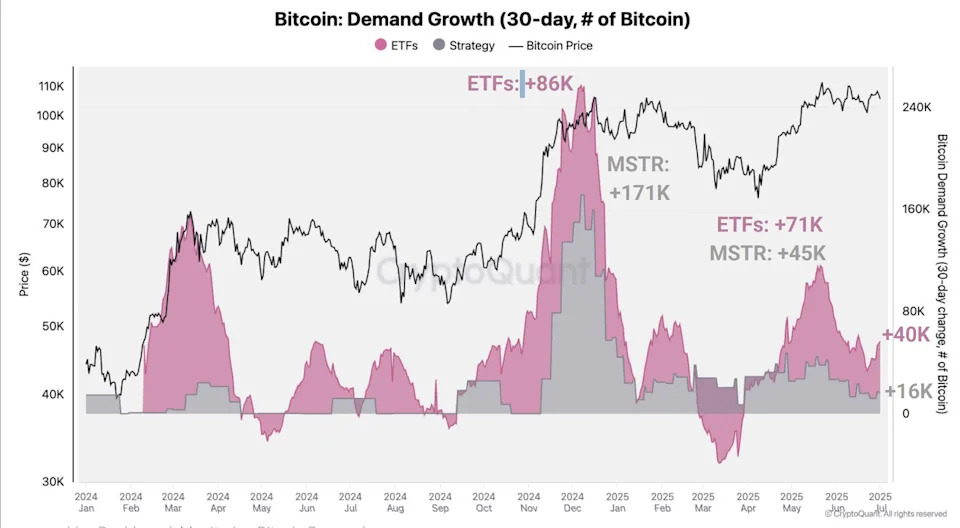
Asia Morning Briefing: Michael Saylor's BTC Buys Aren't Making Up For Slowing Spot Demand, Say Analysts
Key Points
- Bitcoin (BTC) is trading at $109K, up 0.8% in the last week and 4.5% in the last month, but remains in a consolidation phase without a breakout.
- A CryptoQuant report highlights a decline in spot demand for BTC, with a contraction of -895K over the last 30 days, offsetting institutional purchases by ETFs and Michael Saylor's Strategy (MSTR).
- Institutional buying has slowed, with ETF purchases dropping from 86,000 BTC in December to 40,000 recently, and MSTR buys decreasing from 171,000 to 16,000.
- Anthony Scaramucci of SkyBridge Capital predicts the BTC treasury trend, a key demand driver, will fade, while Standard Chartered maintains a bullish $200K price target for BTC.
- Additional indicators of low demand include BTC's nearly empty mempool, reflecting minimal retail spot interest.
Summary
Bitcoin (BTC) is currently trading at $109K, showing modest gains of 0.8% over the past week and 4.5% over the last month, yet it remains in a consolidation phase without breaking past all-time highs. A CryptoQuant report reveals a significant decline in spot demand, with a contraction of -895K BTC in the last 30 days, overshadowing institutional purchases by ETFs and Michael Saylor’s Strategy (MSTR). Institutional buying has notably slowed, with ETF purchases dropping from 86,000 BTC in December to 40,000 recently, and MSTR buys falling from 171,000 to 16,000. This weakening demand is further evidenced by BTC’s nearly empty mempool, indicating low retail interest. SkyBridge Capital’s Anthony Scaramucci suggests the trend of companies adopting BTC as a treasury asset, a key demand driver, may fade, though he remains bullish on BTC overall. Meanwhile, Standard Chartered holds a positive outlook, targeting a $200K price for BTC. Other market movements include Ethereum rallying to $2,558.63 with strong ETF inflows, gold surging 1.91% to $3,336.61 amid a weakening dollar, and Japan’s Nikkei 225 slipping 0.26% due to tariff uncertainties. The crypto market faces challenges from declining demand, raising questions about potential resistance to BTC’s price if institutional support continues to wane.
yahoo
July 7, 2025
Crypto


